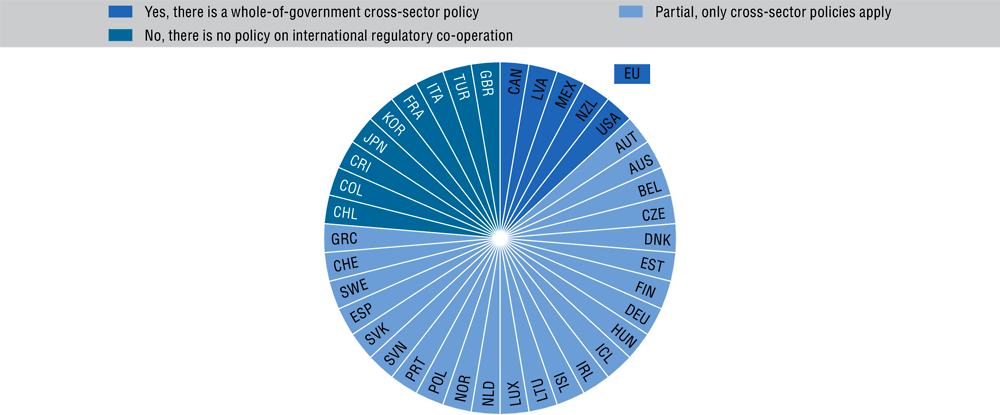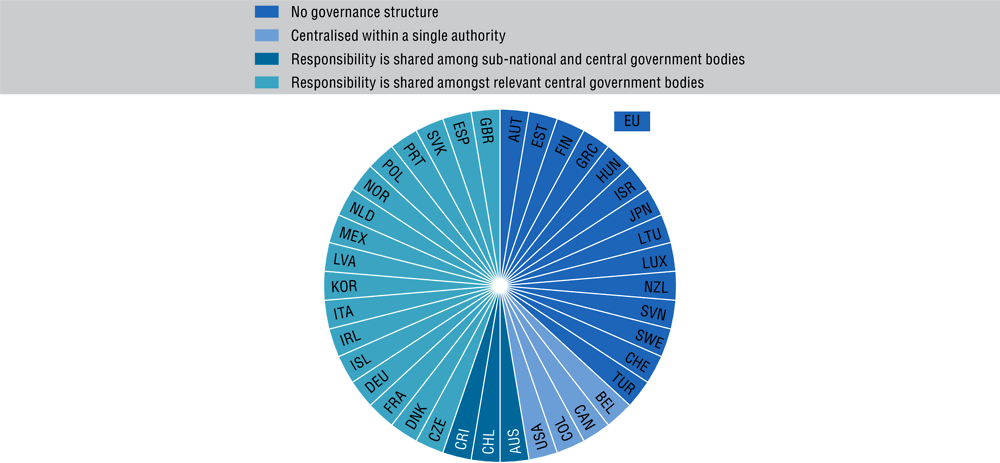Policy challenges are increasingly transcending national borders. Examples range from dealing with a global health crisis, climate change and biodiversity to consumer safety or protection of personal data. These challenges cannot be addressed by countries unilaterally. This is why international regulatory co-operation (IRC) has become central to policymaking and regulatory policy, as it enables governments to collaborate on common problems and learn from each other. In June 2021, the OECD adopted a recommendation on how countries can effectively adopt IRC. This recommendation is built around three pillars: 1) taking a whole of government approach to IRC, 2) recognising IRC throughout domestic rulemaking, and 3) co-operating internationally through a variety of mechanisms.
The OECD Indicators of Regulatory Policy and Governance (iREG) measure how governments implement the recommendation in their regulatory governance and processes. This includes what roles and responsibilities on IRC exist across government, how countries engage with foreign stakeholders when developing regulations, whether they consider international instruments when conducting ex post assessment, or whether international impacts are considered during Regulatory Impact Analysis. Ultimately, this gives a snapshot of countries’ level of preparedness to address global challenges with regulatory tools.
Only 5 of 38 OECD countries (14%) have adopted IRC as a whole-of-government policy (Figure 5.9). A higher number of countries, 23 of 38 (61%), have partial policies for IRC. These can be very ambitious but focused on certain regions or sectors. This is typically the case for EU Member states that have highly integrated regulatory co-operation mechanisms built into their regulatory processes by virtue of their EU membership obligations. These focus on regional partners, and EU Members is rarely framed as a whole-of-government policy related to IRC. In 9 of 38 countries (24%) there is no policy on international regulatory co-operation. Space exists to promote more and better co-ordination of activities across ministries and across ministries and regulators to build a common understanding of IRC.
Governments carry out oversight for IRC with a variety of approaches, but only 4 of 38 countries (11%) have a dedicated body that ensures line ministries are actively implementing IRC (Figure 5.10). Responsibilities are scattered among relevant ministries in 18 of 38 countries (47%), and in 3 of 38 countries (8%) among sub-national and central government bodies. 14 of 38 countries (37%) have no structure at all. The OECD recommends having a governance structure that is conducive to IRC, including the participation of oversight bodies.


